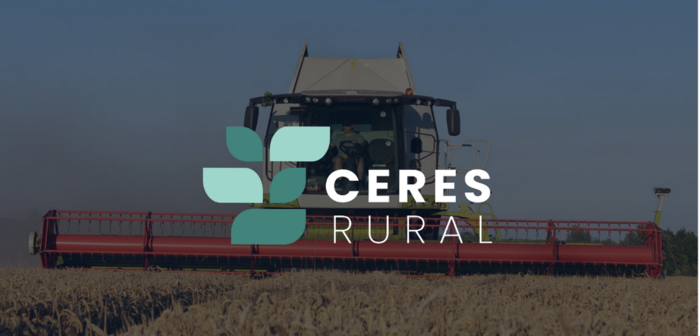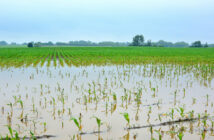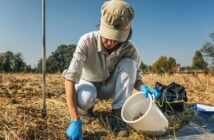Farmers should focus on five key areas when preparing their businesses for a future without the Basic Payment Scheme (BPS), leading consultancy Ceres Rural is advising visitors to the Cereals Event.
With payments already reducing on a tiered basis, future funding will be based on the Environmental Land Management Scheme (ELMS) and its three component parts, the first of which will start to come on stream from next year.
As such, growers will have to get to grips with new schemes and grants, as well as enhanced existing schemes, so that they can evaluate ways of replacing some of the lost funding and develop the productive and profitable businesses that are required for the future.
Taking a close look at current business performance and using the transition period to make changes, especially where farming is the major contributor to profitability, is a priority, believes the Ceres Rural team of experienced consultants.
- Focus on Efficiency
Start by benchmarking, urges partner Richard Means. Knowing how the farm is performing compared to others and whether your business is amongst the top 25% gives a good basis for decision-making.
“There will be new opportunities or changes to consider and it’s much easier to do this with your current performance in mind,” he says.
Reducing costs will be a priority on most farms, but any changes should be introduced in a gradual way so that margins are maintained, advises Mr Means.
“Low input systems only work where soils are functioning well and management is top notch. Be cost appropriate rather than just cutting costs.”
Putting the foundations in place for a consistent, profitable farming system which avoids damage to the environment and delivers public goods takes time, he believes.
“A good starting point is to improve the resilience of your soils. That reduces risk, allows for lower input use and paves the way for ELMS and potentially future carbon sequestration payments.”
- Make Environmental Management as Good as your Farm Management
Accept that nature recovery and environmental sustainability will be key requirements for future success, advises associate partner George Hoyes.
With the guaranteed income stream from Countryside Stewardship still available until 2023, he notes that there’s time to introduce management options to the rotation, see whether they stack up and if the desired environmental outcomes are delivered.
“Farmers will be allowed to leave agreements early to join ELMS when it’s available, so it’s a good way to mitigate some losses from BPS reductions and assess the right options for your farm,” he says.
Two-year whole field environmental fallows might be a good solution where break crops are struggling, while the enhanced over-winter stubble option can work well if grass weeds are threatening profitability, he suggests.
“Stewardship is no longer confined to field corners and edges. There’s a chance to be creative and gain some expertise on your own farm before you have to make changes.”
- Collaborate to Use the Best Skills
Collaboration is a proven way of bringing costs down and making better use of machinery and labour, highlights partner Will Gemmill.
“It also gives you access to other expertise and skills, as well as assets,” he says. “So while it is often introduced to bring about economies of scale, it can also be used to generate new income streams or increase sales.”
Partnering with others ensures that any skills that don’t already exist in the business can be secured, while also avoiding expensive mistakes or over-stretching the existing team’s capabilities, he notes.
“The key is to find a system of collaboration that suits your needs. That may be a very simple sharing arrangement between two neighbouring farmers or a more complex Joint Venture agreement with a professional management structure.”
If in doubt, seek some independent advice on how collaboration could work for your business, he stresses.
- Grow Profits from Diversification/Environmental Management to Spread Risk
Arable farm profitability fell by an estimated 14% in 2020, due to the combination of crop establishment difficulties lower yields and break crop vulnerability to extreme weather, reports partner George Badger.
With a 12% reduction in BPS already introduced for 2021, farmers should look at other funding streams to fill this gap such as the Sustainable Farming Incentive and Countryside Stewardship, as well as the Farm Equipment and Farm Transformation Funds, he suggests.
“In field practices which increase soil organic matter could earn you around £70/ha under the SFI, which is piloting now and will be available next year,” he reveals. “Help with larger infrastructure projects or equipment purchases is on offer with the new funds.”
Diversification projects may also be relevant, especially where farming is contributing less to profitability and there’s a need to spread risk.
“They can take up a lot of your time, which may be to the detriment of the core business, so consider getting advice and assistance to make sure that they are successful.”
- People Make the Difference
Involve the farm team in decisions about the future and use their enthusiasm to try out new ideas and practices, suggests partner Charlie Ireland.
“People are so important in farm businesses and a great deal of effort goes into recruiting, training and retaining the right staff,” he says. “Now is the right time for good teamwork and knowledge exchange.”
Farm trials are an effective way of assessing the contribution of new techniques, or trying out a demonstration drill, before sweeping changes are made, he adds.
“Take independent advice, learn from best practice and get everyone on board with your plans. They are far more likely to succeed if you have taken the team with you.”




